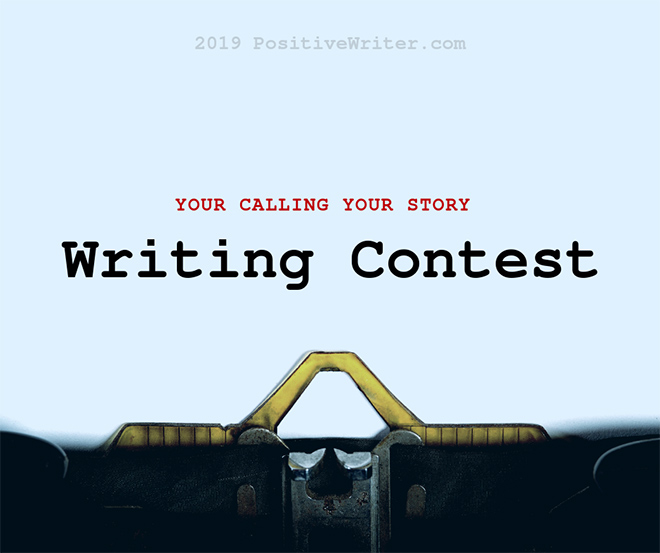This year’s writing contest is all about telling YOUR story as a writer.

When did you know writing is your calling?
What led you to become a writer? What did you go through to get here? Do you remember the moment you realized writing is your calling? Or, did it come to you gradually? How did you feel when you finally realized it?
Tell us about your confidence. Were you always confident to share your work?
Tell us about your doubts and fears. Do you ever feel doubtful? If so, how did you, or what are you doing, to overcome it? Share your trials and tribulations, your elations and your successes.
This writing contest is about helping others see the potential within themselves.
How are you going to do that? I don’t know. But what I do know is: You Can do it.
You are a writer. More than that, you are an inspiration. We need your words. We want to be touched by them, moved by them, and compelled to believe… to believe we’re better than we give ourselves credit for. That anyone with the desire to be CAN be a writer.
You have this power. I know you do. In days like these, we need you to use it.
My suggestion is to write as if the goal of this contest is more important than winning it.
With that said, I do have some prizes for you. 🙂
The Contest:
It’s easy to enter. Write an essay (blog post) with the single purpose of getting those who read it to believe in themselves and their calling, using your experience as inspiration.
I’m not looking for technically perfect posts. I am looking for essays I believe will encourage others to face their challenges and ignite their passion for life and writing. That’s it. I think any further criteria will only inhibit contestants from writing their most inspiring work. Just write it, post it, and we’ll go from there.
This contest ends 15 Dec 2019.
No entry fee.
The prizes are:
1st Prize:
->) $95.00 Amazon gift card + All-New Fire 7 Tablet (7″ display, 16 GB)
2nd Prize:
->) $75.00 Amazon gift card
3rd Prize:
->) $50.00 Amazon gift card
– – – – – –
How to enter the contest:
- Post your essay between 300 to 1000 words on your blog. (You need a blog. If you don’t have one yet, it’s easy to start one on WordPress, or even easier, on Medium.)
- Consider leading into your post with: “I am participating in the Writing Contest: You Are Enough, hosted by Positive Writer.” You can phrase it as you like, but make sure there is a direct link back to this post to qualify.
- Paste the link to your entry in the comments below.
- Subscribe to Positive Writer. One of the perks of subscribing is being able to enter our writing contest. It’s free. Only subscribers can win.
It’s very important that you put your link in the comments to this post because that’s your official entry.
The winners (and runner ups) will be announced via blog posts here on Positive Writer. The best way to stay updated is to subscribe. Also, if you want to be reminded about this contest, subscribe. You can subscribe now, (click) here.
All 3 of the winning posts will be republished as guest posts on Positive Writer. (Awesome exposure for you.)
Most bloggers are looking for a fresh topic to write about, so here you go, you just so happen to be able to enter it into a fun contest, too.
We need your words.
Now go, write that winning post which will inspire people for years to come.
If you have any questions, please ask via the comments section below.
NOTE about entries: If you enter an essay into this contest you agree to allow free use of the article for possible publication as a guest post on Positive Writer, used in compilations, ebooks and other means with full credit to you as the author. This contest is void wherever prohibited.


